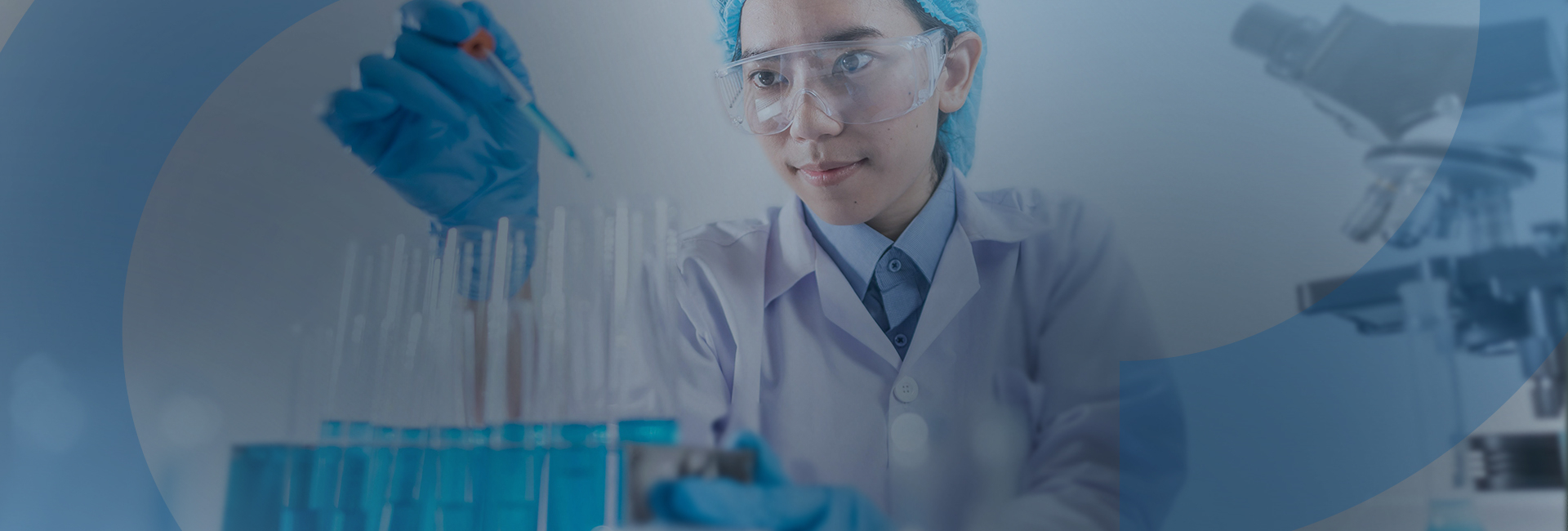THE PROGRAM
The PPGEQ/FURB - Master's Program in Chemical Engineering of the Regional University of Blumenau began its activities in March 2008; its main objective is to train human resources for the development of research of scientific and technological relevance, using methodologies capable of providing specific innovative knowledge that enables the implementation of technologies in the scope of physical, chemical and biotechnological processes.
The PPGEQ is inserted in a regional and national context with the development of applied scientific research seeking technological development and innovation in strategic areas for the country, such as the areas of fuels and biofuels, reuse of industrial waste, food production and nanotechnology.
Area of interest
Process Development - aims to apply and improve the basic principles of Chemical Engineering, in order to promote the integration of industrial processes, involving physical, chemical and biotechnological transformations and enable the application of scientific research methodologies to support planning, design, development, modeling, simulation, optimization, operation and process control.
MASTER'S DEGREE IN CHEMICAL ENGINEERING
Duration: 2 years
Total courses hours: 450 hours
Number of vacancies: 15
Class period: courses will be taught preferentially on Mondays and Tuesdays afternoon
Courses local: FURB campus 2, Blumenau - Brazil

RESEARCH LINES
- Process development in biofuels;
- Process development in food industry;
- Modeling, simulation, control and process optimization
REQUIRED COURSES - MASTER'S DEGREE
Transport Phenomena - 45 hours/class
Equations for conservation of mass, momentum, energy and chemical species. Transport properties. Solution of problems involving heat transfer, mass and momentum. Boundary layer. Laminar and turbulent flow.
Applied Thermodynamics – 45 hours/class
Introduction. Principles of thermodynamics. Thermodynamic potentials and natural variables, basic relations and equilibrium criteria, experimental variables. Volumetric and calorimetric properties. Phase equilibrium: Partial molar properties. Chemical potential. Fugacity and fugacity coefficient. Excess functions: Activity and activity coefficient. Fugacity of gas mixtures: Equations of state. Fugacity of liquid mixtures: Excess functions.
Kinetics and Reactors – 45 hours/class
Fundamentals of kinetics and reactor calculations. Calculation of homogeneous reactors: isothermal and non-isothermal conditions. Deviations from ideal behavior. Introduction to heterogeneous reactors.
Mathematical Models and Methods in Chemical Engineering – 45 hours/class
Macroscopic and microscopic modeling of chemical engineering processes. Ordinary differential equations (ODE): Solutions by series; special functions; systems of ordinary differential equations; numerical solutions. Partial differential equations (PDE): defining boundary conditions; method of separation of variables; Fourier and Laplace. Use of computer programs with specialized libraries for analytical and numerical solutions of ODE and PDE.
Master's Seminar – 60 hours/class
Bibliographic research, preparation and presentation of the Master's dissertation project with oral presentation, before a committee, duly indicated and approved by the program's board, characterizing as pre-qualification for the dissertation defense.
Master's Dissertation – 75 hours/class
Development of scientific research based on the methodological principles defined in the seminar with a view to preparing the dissertation that must be defended before a panel, duly indicated and approved by the program's board.
ELECTIVE COURSES - MASTER'S DEGREE
Electives for all lines
- Research Methodology in Chemical Engineering – 30 hours/class
Science, research and method. Scientific research in Chemical Engineering. Research methods and techniques. Introduction to the research project. Types of scientific work. - Experimental Measurements and Methods in Chemical Engineering – 45 hours/class
Fundamental concepts. Experimental data and analysis. Pressure, velocity, flow and temperature measurements. Thermal and transport property measurements. Data acquisition. Experiment planning and design.
Electives by research line
Modeling, Simulation, Control and Optimization of Processes
- Modeling and Simulation of Processes – 45 hours/class
Mathematical models of processes and concentrated and distributed parameters. Numerical simulation of steady-state and dynamic process behaviors. Flow, reaction and equilibrium systems. Population balance models. Weighted residual methods. - Process Control – 45 hours/class
Analysis and design of classic controllers; introduction to digital control; identification of linear models; recursive algorithms; predictive control with long-range horizon: MAC, DMC, GPC, others. Self-adjusting controller. - Process Optimization – 45 hours/class
The diversity of optimization problems in Chemical Engineering. Theoretical foundations. Univariate and multivariate search without restrictions. Simple linear programming and with multiple objectives. Nonlinear programming. Dynamic and heuristic programming. Linear and nonlinear programming with integers, and statistical process optimization techniques. Computational aspects. Applications to equipment and processes. Analysis of recent literature.
Processes in the Oil, Gas and Alternative Fuels Industry
- Energy, Environment and Sustainable Development – 45 hours/class
Concepts about development and the environment and their relationships with energy. Importance of energy production and use on economic and social development and potential
CONTACT
PPGEQ - Post-Graduate Program in Chemical Engineering
Coordination: Dr. Marcela Kotsuka da Silva Câmara Bastos
Contact
Campus 2 - Room I-006 - Map
+55 47 3221-6144
ppgeq@furb.br


